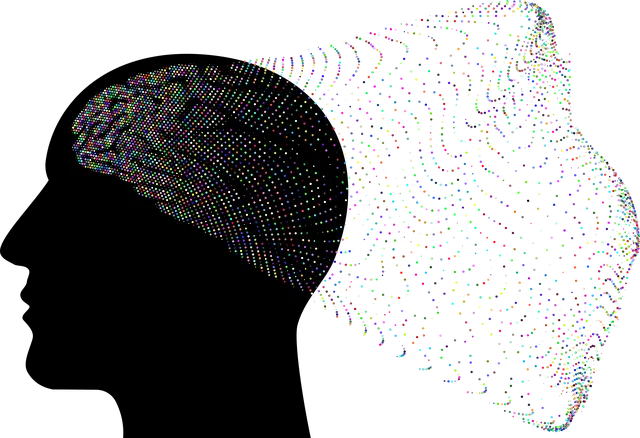Kaiser Permanente's mental health appointment center in Wheat Ridge is a pioneering initiative tackling the widespread issue of mental illness by reducing stigma. Through holistic strategies including educational programs, podcasts, workshops, and community engagement, they foster open conversations about mental wellness, mirroring the supportive atmosphere within their center. These efforts empower individuals to discuss mental health without judgment, normalizing conversations and improving access to critical support in Wheat Ridge's dedicated facility.
Mental illness stigma remains a significant barrier to treatment, but efforts to reduce it are gaining momentum. This article explores various strategies aimed at breaking down the barriers of perception and fostering understanding. We delve into the local impact of stigma and highlight successful initiatives like Kaiser Permanente’s mental health appointment center in Wheat Ridge, which serves as a model for change. Additionally, we discuss community engagement, education, and healthcare setting interventions to create a more supportive network for those facing mental health challenges.
- Understanding the Impact of Stigma: A Local Perspective
- Kaiser Permanente Wheat Ridge: A Model for Change
- Strategies to Reduce Stigma in Healthcare Settings
- Community Engagement and Education: Building a Supportive Network
Understanding the Impact of Stigma: A Local Perspective

In the heart of Wheat Ridge, Kaiser Permanente’s mental health appointment center stands as a beacon of hope and understanding. This local resource underscores the growing recognition of mental illness as a prevalent and complex challenge affecting individuals across all walks of life. The impact of stigma surrounding these issues is profound, often deterring people from seeking much-needed support. Many struggle in silence, facing isolation and reduced access to care.
Efforts to reduce this stigma are crucial for fostering open conversations about mental health. The Mental Wellness Podcast Series Production, for instance, plays a vital role by humanizing experiences and sharing stories of resilience. Similarly, Depression Prevention and Burnout Prevention Strategies for Healthcare Providers are essential components of a holistic approach. By educating the community and healthcare professionals alike, these initiatives aim to create an environment where individuals feel empowered to discuss their mental wellness openly, much like those availing services at Kaiser Permanente’s Wheat Ridge center.
Kaiser Permanente Wheat Ridge: A Model for Change

Kaiser Permanente’s mental health appointment center in Wheat Ridge serves as a shining example of successful stigma reduction efforts. This innovative model prioritizes community outreach programs, integrating mental health services seamlessly into primary care settings. By fostering open dialogues and normalizing conversations about mental wellness, they’ve created an environment where individuals feel comfortable seeking support without fear of judgment or discrimination.
The center’s success lies in its holistic approach, combining Burnout Prevention Strategies for Healthcare Providers with Mental Health Policy Analysis and Advocacy. This comprehensive strategy ensures that both patients and healthcare professionals benefit from reduced stigma. Through regular workshops, awareness campaigns, and educational initiatives, Kaiser Permanente Wheat Ridge continues to break down barriers, promoting a more inclusive and supportive community for mental health care.
Strategies to Reduce Stigma in Healthcare Settings

Stigma reduction efforts play a pivotal role in fostering an inclusive healthcare environment, particularly within mental health appointment centers like those operated by Kaiser Permanente in Wheat Ridge. One effective strategy is to integrate educational programs that dispel myths and misconceptions surrounding mental illness. These initiatives can involve workshops, seminars, or even simple informational sessions for both healthcare professionals and the general public. By promoting understanding and empathy, these programs create a safer space for individuals seeking help.
Additionally, encouraging open conversations about mental health through platforms like Mindfulness Meditation and Mental Wellness Coaching Programs Development can significantly contribute to stigma reduction. Emotional Healing Processes are integral to these efforts, as they help individuals process their experiences and express their feelings openly, further normalizing the discussion around mental wellness within healthcare settings.
Community Engagement and Education: Building a Supportive Network

Community engagement and education play a pivotal role in reducing the stigma surrounding mental illness. By fostering open conversations and raising awareness, Kaiser Permanente’s mental health appointment centers in Wheat Ridge aim to create a supportive network for individuals seeking help. Educational initiatives can take various forms, such as workshops, community events, or even a Mental Wellness Podcast Series Production, designed to impart valuable insights into managing emotional regulation and stress reduction methods.
These efforts not only dispel myths but also encourage empathy and understanding. Through interactive sessions, participants learn about different mental health conditions, gain practical tools for coping, and develop strategies to support friends and family members dealing with mental illness. Such community engagement fosters a culture of care and acceptance, ultimately reducing the barriers that prevent people from seeking the help they need at Kaiser Permanente’s dedicated facilities in Wheat Ridge.
Mental illness stigma reduction is a multifaceted approach, as demonstrated by initiatives like those at Kaiser Permanente’s Wheat Ridge Mental Health Appointment Center. By combining local perspective insights with strategies such as community engagement and education, healthcare settings can foster supportive networks that de-stigmatize mental health issues. This comprehensive approach, exemplified by Kaiser Permanente’s model for change, is crucial in ensuring individuals receive the care they need without fear of judgment or discrimination. Through continued efforts, we can create a more inclusive society where mental well-being is nurtured and supported at every turn.






